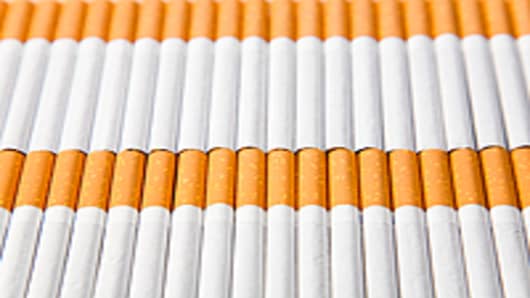There's no better example of the law of unintended consequences than cigarette taxes in the United States.
Each state sets its own rate, and the disparity is huge. Missouri's state cigarette tax is 17 cents. It's $4.35 in New York.
What's the unintended consequence? Crime.
According to the Bureau of Alcohol, Tobacco, Firearms and Explosives, the United States loses $5 billion in tax revenue every year from the trafficking of illegal cigarettes. Worldwide, it's a $100 billion problem, and it's the No. 1 economic crime in Europe.



